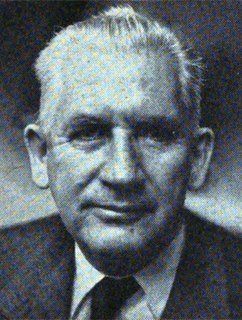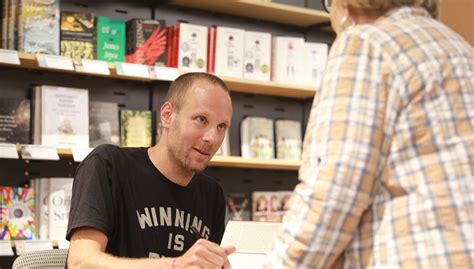A Quote by Louis Menand
Diminished circumstances had no effect on his sense of what was honorable: after The Spectator sent him a check for a piece it had accepted but was unable to run for a lack of space, he refused to write for the magazine again.
Related Quotes
"If it wasn’t for the mist we could see your home across the bay," said Gatsby. "You always have a green light that burns at the end of your dock." Daisy put her arm through his abruptly but he seemed absorbed in what he had just said. Possibly it had occurred to him that the colossal significance of that light had now vanished forever. Compared to the great distance that had separated him from Daisy it had seemed very near to him, almost touching her. It had seemed as close as a star to the moon. Now it was again a green light on a dock. His count of enchanted things had diminished by one.
He ran as he'd never run before, with neither hope nor despair. He ran because the world was divided into opposites and his side had already been chosen for him, his only choice being whether or not to play his part with heart and courage. He ran because fate had placed him in a position of responsibility and he had accepted the burden. He ran because his self-respect required it. He ran because he loved his friends and this was the only thing he could do to end the madness that was killing and maiming them.
I spent a part of ...1923 with...Dr. W.W. Keen...In the ..Civil War....he was a surgeon...and had seen many men die from suppuration of wounds after he had operated. ...He would hold the sutures in his teeth and sharpen his knife on the sole of his boot, after he had raised up his boot from the muddy ground. That was the accepted practice at the time.
I reached out to [Brett Favre] early on; sent him some of my books and a letter. Then I had two or three arranged times with him, and was blown off. Then I sent him another letter, and he sent me a text, explaining that he didn't wish to talk. I'm not mad - it's his right, obviously. Plus, his family members were amazingly open and cool.
I lost my dad two years ago to cancer, and before he died, I asked him to write 'Daddy's Little Girl' on a piece of paper for me. I told him it was for an album. He practiced and practiced and then sent it to me, and I had it tattooed onto my wrist and surprised him with it. He cried when he saw it, happy tears. This way I always carry him with me.
When Luke had descended into the River Styx, he would've had to focus on something important that would hold him to his mortal life. Otherwise he would've dissolved. I had seen Annabeth, and I had a feeling he had too. He had pictured that scene Hestia showed me—of himself in the good old days with Thalia and Annabeth, when he promised they would be a family. Hurting Annabeth in battle had shocked him into remembering that promise. It had allowed his mortal conscience to take over again, and defeat Kronos. His weak spot—his Achilles heel—had saved us all
After visiting these places, you can easily understand how that within a few years Hitler will emerge from the hatred that surrounds him now as one of the most significant figures who ever lived. He had boundless ambition for his country which rendered him a menace to the peace of the world, but he had a mystery about him in the way that he lived and in the manner of his death that will live and grow after him. He had in him the stuff of which legends are made.
Lagrange, in one of the later years of his life, imagined that he had overcome the difficulty (of the parallel axiom). He went so far as to write a paper, which he took with him to the Institute, and began to read it. But in the first paragraph something struck him that he had not observed: he muttered: 'Il faut que j'y songe encore', and put the paper in his pocket.' [I must think about it again]



































